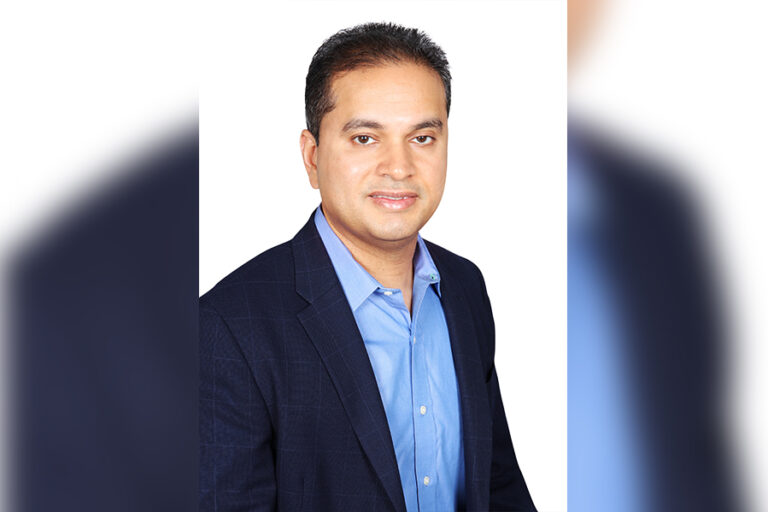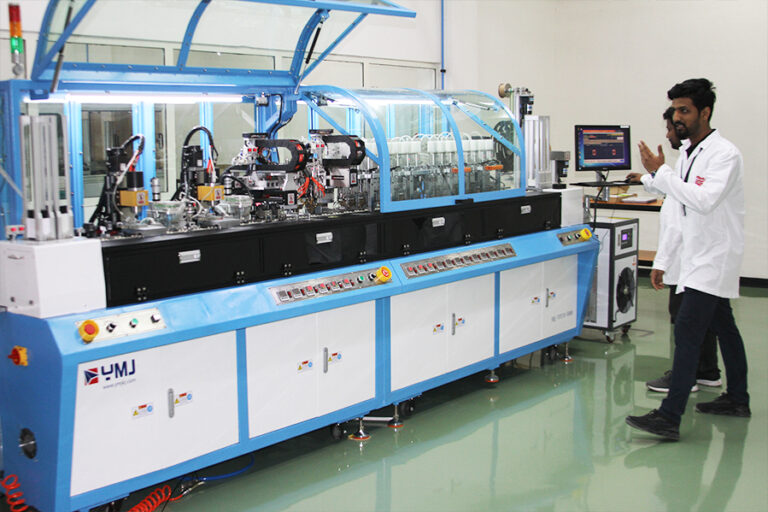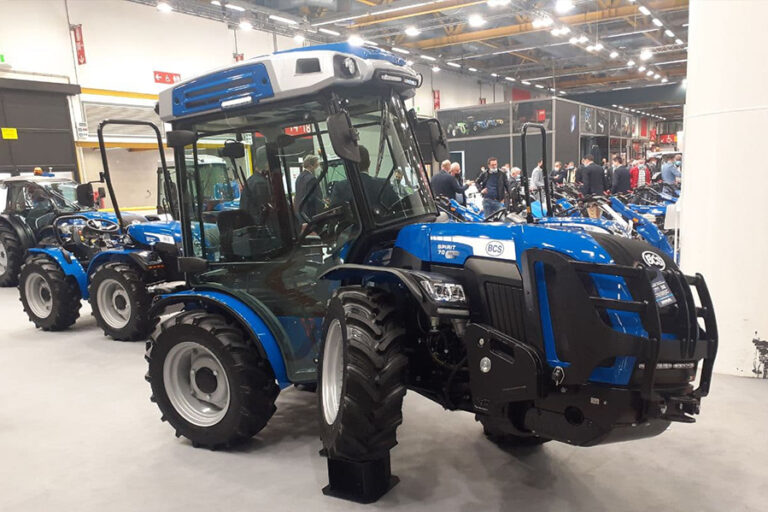MICROPLASTICS could harm fetal health, according to new research presented by scientists.
The findings were presented by scientists at the Plastic Health Summit in Amsterdam. Research conducted at Utrecht University found that even very large plastic particles can be absorbed by placenta cells. This includes 10 micrometre polystyrene particles which can be absorbed. The research also found that plastic particles can become a vector for other chemicals they encounter in the environment.
This in turn could expose the fetus to a raft of potentially dangerous pollutants. These pollutants include Polychlorinated Biphenyls – a group of manmade chemicals that have been shown to cause cancer in animals. Lead researcher Hanna Dusza said more research is urgently required to establish the extent to which microplastics in the fetal environment can affect health.
Microplastics could harm unborn babies new research finds
SMART CARD SOLUTIONS
The Subscriber Identity Module (SIM) card is something you probably don’t think about very much, except when you get a new phone and the card needs to be transferred from the old device to the new one, along with the phone’s stored information.
But SIM cards serve an important purpose in telecommunications. They link a physical device with the owner’s account, making it possible to route calls for individuals to the right device and allowing phone companies to accurately measure utilization and charge subscribers for their service.
Here in Ethiopia, a pioneer facility was set up by the Lootah Industries PLC for the production of Smartcards. As the Telecommunication industry opens up with a new entrant Safaricom-Ethiopia, the local smart card solutions will be of great benefit to the economy.
In order to better understand the smart card solution and technology market that includes GSM SIM Business, Banking Cards and the like, Capital drew link with Prateek Dayal, who is a visionary with deep understanding of the Telecommunications and IT industry. Prateek leads Lootah Industries as the Executive Director and has a career that spans over 25 years.
Prateek has also held key roles in leading global organizations like Hewlett-Packard and Xerox at Director level positions. He has further managed global organizations in the areas of Telecommunications, Information Technology, IT strategy, Development, IT Infrastructure Management, Channel Management (1st and 2nd Tier), Distribution Management, End User sales, ERP implementations, Marketing, Finance, Operations and Human Resources. The following were the insights provided by Prateek. Excerpts;
Capital: Can you please tell us about Lootah Industries PLC, a brief history?
Prateek Dayal: Lootah Industries PLC was incorporated in 2012 and has diversified business interests spanning Information Technology, Telecommunications, Agriculture, Steel and water.
Lootah Industries PLC started construction of the Smartcard manufacturing facility in October 2019 at the invitation of Ethio Telecom as such a facility did not exist in Ethiopia and would be a strong asset to the economy.
It took only 2 years to build this world class facility despite the challenges and delays caused by the Coronavirus. The factory is fully operational and will start live production in November 2021.
Capital: Do you operate in other African countries? If yes where?
Prateek Dayal: The Lootah Group of Companies was established in 1973 and is headquartered in Dubai (U.A.E). The Lootah Group has a presence across Africa and the Middle East. The countries where they operate in are UAE, Ethiopia, Djibouti, Somalia and Tanzania. We plan to invest US$ 250 million over the next 3 years in Ethiopia, Vietnam and Germany.
Capital: When did you start the construction of your facility in Ethiopia?
Prateek Dayal: The planning for the Smartcard manufacturing unit started in October 2019.
Capital: How much money did you invest in the facility?
Prateek Dayal: The investment in the GSM SIM manufacturing facility is US$ 4 million. We plan to invest another US$ 6 million into the Banking and ID card operations.
Capital: Who will be your major customers in East Africa and beyond?
Prateek Dayal: The priority is to serve the people of Ethiopia, so the focus is Ethio Telecom, Safaricom and any other operator in the country. We also have plans to start exports to other African countries like Kenya, Tanzania, Djibouti and Somalia.
Capital: How do you describe the SIM card business in Ethiopia and East Africa?
Prateek Dayal: Ethiopia has a strong and growing smartcard market which is supported by the government policy to attract new Telecom Operators to the country and expand the telecom reach to every citizen in the country. The East African market is equally strong and growing.
Capital: You are also vying to make bank cards, who are you targeting, and did you approach any banks operating in Ethiopia and the region?
Prateek Dayal: We will start the banking cards operation in 2021. The priority is the Ethiopian banks requirements of debit and credit cards as all these cards are imported at the moment. After this we will start exporting the banking cards. Our partnership with Thales is important in this regard as they have a strong banking cards presence in Ethiopia and Africa.
Capital: Are you planning to do cards for electric power meters?
Prateek Dayal: This is not planned at the moment.
Capital: How would you describe your facility here in Ethiopia?
Prateek Dayal: It is a High End Technology, world class facility built to international standards. The factory was designed by a highly experienced team which planned a smooth workflow between the different manufacturing processes.
The equipment used is brand new and the best in class. For the card personalization process, we have used equipment from Muehlbauer (Germany).
When you are inside the facility you will not know whether you are in Germany, Singapore or Ethiopia.
First Smartcard facility kicks off operation
Ethiopia’s first smartcard manufacturing facility will start production of GSM SIM cards from November 2021.
Lootah Industries PLC; a local company located in Addis Ababa Haile Garment area, started development of this high-tech facility 2 years ago and after investing US$ 4 million into the factory they are going to start production this year.
“It is with great pride and honor that I am pleased to announce that we have established the first smartcard manufacturing facility in Ethiopia and East Africa,” said Ibrahim Saeed Ahmed Lootah, Chairman of the Lootah Group of Companies.
“We thank the government for their bold vision to liberalize the economy, telecom sector and attract new high-tech industries to Ethiopia. We completed the factory in record time despite the challenges faced by Covid. We are committed to serving the people of Ethiopia and provide them with the best technology possible,” remarked the Chairman.
It is to be recalled that, Ethio Telecom had floated a request to manufacture GSM SIM cards locally in Ethiopia in September 2020. The telecom company at the time wanted to bring this technology to Ethiopia and support the development of the local economy. Of course this was because all the GSM SIM cards were imported from foreign suppliers which meant payment in US$ for the imports, logistics and other costs that could be saved by locally manufacturing the SIM cards.
Ethio Telecom signed the 3 years master frame agreement with Lootah Industries PLC in September 2021 and the delivery of the 1st batch of SIM cards is set to take place in November 2021.
“The benefits of this facility are immense. It is a complete gamechanger as this puts Ethiopia into the few elite countries in Africa capable of manufacturing and exporting Smartcards,” expressed Prateek Dayal, Executive Director for Lootah Industries.
“The facility is built to world class standards keeping in view the requirements of this industry. We invested in the best German equipment to ensure the highest standards of quality. We have a long-term vision, and we will move into the banking and National ID sectors soon,” explained Prateek while citing areas that the company can diversify in down the road.
The factory has a current capacity to manufacture 40 million smartcards per year. But it has been designed to easily increase this to 120 million smartcards as more operators enter the country, Banking and ID businesses come online and the exports start.
Also on the expansion plans is an investment into a production line to manufacture Telecom Scratch cards (Voucher Cards) which can produce 1 billion PIN’s per year. This is not only enough for the local requirements of Ethiopia but can also allow for some exports.
In terms of human resources there will be a requirement to hire 250 plus staff locally when fully operational. The factory is already in the process of adding 25 employees during October.
The Ethiopian Investment Commission and Ministry of Trade have visited the factory already and have provided their full support to the project.
The Lootah Group has been active in Ethiopia for over 8 years. Their business interests are spread across various sectors such as Information Technology, Telecommunications, Agriculture, Steel, Switchgears, bottled water and construction. During this period the group has invested more than US$ 50 million into the country.
EIMA, a return in style
The 44th edition of EIMA International, the world exhibition of machinery, equipment and components for agriculture and landscaping, was held in Bologna, Italy from 19 to 23 October.
The event, the first international event in the sector after the suspension of trade shows activities imposed by the health emergency, was attended by 1,350 exhibiting companies, 350 of which are foreign, representing over 40 countries and displaying more than 40 thousand models in the 14 specialized sectors and 5 theme shows “Components”, “Green”, “Energy”, “Digital” and “Hydrotech” in which the event is divided.
During the presentation in Bologna, Simona Rapastella, General Manager of FederUnacoma, the Italian federation of manufacturers that organizes the event, commented: “The number of exhibitors is very positive if we consider that, due to force majeure connected to Covid restrictions, companies from some important countries are missing, such as China or India, which were present with more than 300 industries at the last edition and which should return, together with manufacturers from other countries, in the next edition in November 2022”.
Apart from the limitations still in force for some areas, EIMA 2021 confirms its international character. During the five days of the exhibition, in addition to agricultural entrepreneurs and mechanization technicians, businesspeople from all over the world including a delegation from Ethiopia attended the Exhibition, interested in negotiating the purchase of machinery that responds to the specific needs of the various farming and business models.
A wide range of categories, new products and absolute previews were the traditional strong points of the event. The Technical Innovation Competition has been confirmed, which rewards the innovative solutions designed by manufacturers for all types of agricultural work.
Focus on training young people in agriculture
The theme of education and training for technicians in the sector and for the farmers of the future was in the spotlight of EIMA International, the great exhibition of machinery for agriculture and gardening. The evolution of skills in the agro-mechanical field requires a new generation of technicians who, depending on the functions they will perform, will have to come from much more specialized educational and training paths than those of today. The issue was addressed at a conference entitled “Reforming agricultural upper schools to meet new needs”, promoted in cooperation with FederUnacoma by Agia, the organization that represents young farmers within Cia.
The motor world ready for the “green revolution”
At EIMA, a debate is opening among operators in the agricultural sector to offer a contribution to Community strategies for the reduction of carbon dioxide emissions. A comparison in view of the turning points in the Community policy for environmental protection, which have not yet produced a deadline for the entry into force of the ban on the sale of endothermic engines for self-propelled agricultural vehicles. “For now, we are talking about working plans that are open to improvements that can be made by all the players in the agricultural world,” says Marco Pezzini, head of the EU policy sector of FederUnacona, the federation of Italian manufacturers. This is a somewhat reassuring message – which emerged at the ‘Green Deal and Powertrain technology’ meeting, in the face of recently circulated speculation that the ban should come into force in a binding manner as early as 2035.
However, the agricultural machinery industry is ready to face the green revolution, as the companies in the sector confirm. “We are working on two lines of engine optimization to make them run on environmentally friendly fuels,” explains Diego Rotti, Product Marketing Manager Off-Road at FptIndustrial, “but it will still take time to develop solutions based on hydrogen or electrification”. “In any case, there are already hybrid or methane engines with a lower environmental impact,” says Rotti. The road has been mapped out, as Stefano Fiorani, Tractor Innovation Manager at New HollandAgriculture, confirms. We are ready,” says Fiorani, “to meet the demands coming from Europe, our company has already put machines with methane engines into production and we have created a prototype of an electrified specialist tractor.” Companies are already building the future. But they urge the European Commission’s top management to remember that the agricultural sector has several souls, from animal husbandry to extensive farming to specialized farming.
TOTY, the spectacle of technology
The inaugural day of EIMA International saw the proclamation of the “Tractor of the Year”, the tractor voted by an international jury of journalists as the best performing from the shortlist of 14 finalist models. The “Tractor of the Year” award went to John Deere’s 7R 350 AutoPowr models, which won the prize in particular for its on-board technology. The “Best of Specialized” category, reserved for specialized crop tractors, was won by the Reform model H75 PRO, which stood out for its comfort and safety features, while the “Best Utility” award went to another John Deere, the 6120M AutoPowr, praised for its versatility. Finally, the “Sustainable TOTY” award, for models with particular qualities in terms of environmental compatibility, went to New Holland’s T6.180 Methane Power tractor, for its low environmental impact fuel supply.





